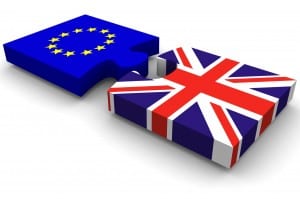Guest Post: Norway and the EU as a model for Brexit – an ideal, or the worst case scenario?
By yjmsgi3, on 2 June 2016
by Eline Groholt, IMESS Politics and International Economy Student
Sometimes described as an ideal model for EU-British relations, at other times used as scare tactics of how bad it could get, Norway’s relation to the EU provides an interesting comparison for Great Britain’s options in the event of Brexit.
With 80 per cent of Norwegian exports and 60 per cent of imports coming from the EU, Norway is obliged to accept EU rules and regulations in order to access the common market, but is exempted with regards to important sectors such as agriculture and fishery. Norway adopts about three quarters of all EU legislation, without the right to vote on, or influence the law making process, except from being consulted in the initial stage of the process. Would Great Britain be ready to give up the right to influence legislation it is bound to follow?
Interestingly enough, the Norwegian government is backing the British remain campaign, although not itself a member. Following the two EU referenda in 1972 and 1994, Norway voted by a narrow margin to stay outside the EU, but remained within the European Economic Area (EEA) together with Iceland and Liechtenstein (EFTA members). As a former Norwegian minister of Foreign Affairs declared to The Guardian: “the EEA has become Norway’s compromise on Europe.” If Great Britain followed the Norwegian model, it would severely alter the power balance of the EEA itself.
However, as the British referendum on the EU is approaching, British politicians supporting the “Vote Leave” campaign have become increasingly reluctant to picture the Norwegian model as an ideal option. In fact, it is becoming more and more evident what this option would actually involve, which threats British sovereignty would face and how the country would see undermined its role in the whole Europe.
Having voted ‘no’ twice, the Norwegian EU debate has been declared dead, leading to a lack of discussion, debate, healthy political conversation, and consequently, poor knowledge of EU political decision-making mechanisms and policies in general. Paradoxically, this happens at the same time as Norway becomes more closely integrated with the EU. A British referendum on the EU has at least sparked a vibrant debate in Britain on how the EU actually works. This should be welcomed.
Norway as a model for UK? So close, yet so far!
Although an interesting idea to ponder, the vast differences between the two countries make for a strange comparison. Norway is a small, resource exporting country with five million people belonging to Europe’s periphery, whereas Great Britain is a huge service economy with global ambitions and a world leading financial centre. It is hard to imagine a country like UK giving up influencing powers over EU legislation. And as EU scepticism continues to grow across Europe, perhaps a reluctant member like UK is exactly what the EU needs in order to modernise.
Note: Views expressed are those of the author, and not necessarily those of SSEES, UCL, or SSEES Research Blog
 Close
Close








